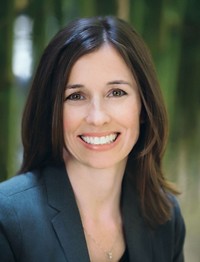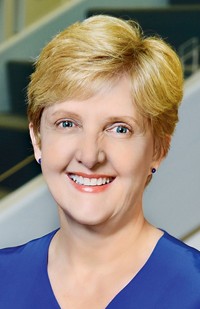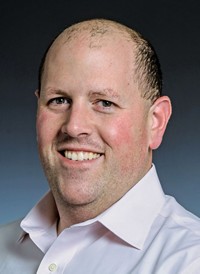Advertisement
Grab your lab coat. Let's get started
Welcome!
Welcome!
Create an account below to get 6 C&EN articles per month, receive newsletters and more - all free.
It seems this is your first time logging in online. Please enter the following information to continue.
As an ACS member you automatically get access to this site. All we need is few more details to create your reading experience.
Not you? Sign in with a different account.
Not you? Sign in with a different account.
ERROR 1
ERROR 1
ERROR 2
ERROR 2
ERROR 2
ERROR 2
ERROR 2
Password and Confirm password must match.
If you have an ACS member number, please enter it here so we can link this account to your membership. (optional)
ERROR 2
ACS values your privacy. By submitting your information, you are gaining access to C&EN and subscribing to our weekly newsletter. We use the information you provide to make your reading experience better, and we will never sell your data to third party members.
Policy
Chemists And Policy—Bridging The Gap
by Laura E. Pence, Chair, Committee On Environmental Improvement
September 22, 2014
| A version of this story appeared in
Volume 92, Issue 38
Since the middle of the 20th century, the role of science in American life has changed rapidly. Many chemists struggle to meet shifting expectations about how our science should be applied to global challenges. The disorientation is particularly pronounced when chemists interact with government policymakers to bring insights to national and global questions.
As Johann Wolfgang von Goethe pointed out, “Everyone hears only what he understands.” For scientists, learning the differences between the culture of the chemical science and engineering professions and the world of legislative and government officials is critical to bridging what may seem like an impassable gap.
The process of integrating expert information into policy and political decision making can be frustrating for all involved. As chemists, we expect decisions to be made based on scientific data and often assign a lower priority to economic and political considerations. Scientists who wish to influence policy decisions need to understand issues from myriad perspectives.
This reality is one of many insights shared by American Chemical Society Public Policy Fellows, who spend either one year working on Capitol Hill or one to two years in the ACS Office of Public Affairs. I was recently honored to join their ranks, and I share insights here from my experience and that of my fellow 2012–13 ACS Congressional Fellow, Vickie Gunderson.
Vickie spent her fellowship year supporting Sen. Ron Wyden (D-Ore.), then chairman of the Senate Committee on Energy & Natural Resources. One of Vickie’s most significant projects involved legislation, S. 783, to preserve access to the Federal Helium Reserve. The reserve, which provides 40% of the domestic and 30% of the global helium supply, was set to close in September 2013. Chemists had already experienced helium shortages for nuclear magnetic resonance spectroscopy and mass spectrometry, and halting the federal supply would have further disrupted the academic, industrial, and government R&D communities.
Working beside senior committee staff, Vickie helped draft, introduce, and later amend S. 783. Her scientific background was an asset in meetings with helium producers, suppliers, and users, as well as with White House and other federal officials, national laboratory representatives, scientific societies, and academics.
After planning and executing a legislative hearing, Vickie worked to secure legislative cosponsors and to draft press releases and committee reports for the bill. She simultaneously tracked the companion House of Representatives legislation (H.R. 527) and engaged in bicameral, bipartisan meetings to ensure that the legislation advanced before the helium reserve closed. To the scientific community’s relief, the bill was signed into law in September 2013.
In contrast to Vickie’s committee experience, I worked in the personal office of Sen. Michael F. Bennet (D-Colo.), where I applied my analytical and research skills to a bill on water policy. Water Resources Reform & Development Act bills are administered by the Army Corps of Engineers and were originally intended to be passed every two to five years. But since 2007, gridlock and an earmark ban had retarded consideration of this normally earmark-laden bill.
I began by researching water projects in Colorado that might fit in the bill and interacting with state and local stakeholders and with the Army Corps. I analyzed each draft of the bill to identify provisions that might benefit my adopted state and language tweaks that could aid multiple parties. Working with other staff, I coordinated a joint letter from the Colorado congressional delegation in support of specific provisions.
When the bill was debated on the Senate floor, I was responsible for tracking, researching, and proposing positions on amendments. Those recommendations required balancing science with state and regional concerns; as a scientist, my data evaluation skills uniquely suited the challenge. The bill passed the Senate in May 2013, and in June 2014, it was signed into law.
When we finished our fellowships in August 2013, Vickie moved to an American Association for the Advancement of Science fellowship working on energy policy at the State Department’s China desk, and I returned to the University of Hartford and resumed my leadership of the ACS Committee on Environmental Improvement.
Looking back, it is clear that our experiences shared many elements. Great mentors helped each of us understand the policy world and the best ways to apply our scientific insights and skills. Going well beyond our assigned issues, we used our knowledge and experience to develop relationships and help others meet goals. We also became adept at meeting diverse stakeholders, understanding their perspectives and concerns, and integrating this information into analyses that were informed, but not controlled, by our science.
Our training in research, analysis, and communication makes scientists uniquely qualified to contribute to public policy both on issues of particular interest to science and on those more broadly relevant to society. However, to apply that insight and experience, we must understand the nuances of the policy process that empower us to deliver our contributions to those with different perspectives. Scientists’ success in influencing the policy world can be informed by this simple wisdom from Charles Darwin: “In the long history of humankind ... those who learned to collaborate and improvise most effectively have prevailed.”
More information about the ACS Public Policy Fellowships, including how to apply, can be found at www.acs.org/policyfellow.
Views expressed on this page are those of the author and not necessarily those of ACS.






Join the conversation
Contact the reporter
Submit a Letter to the Editor for publication
Engage with us on Twitter